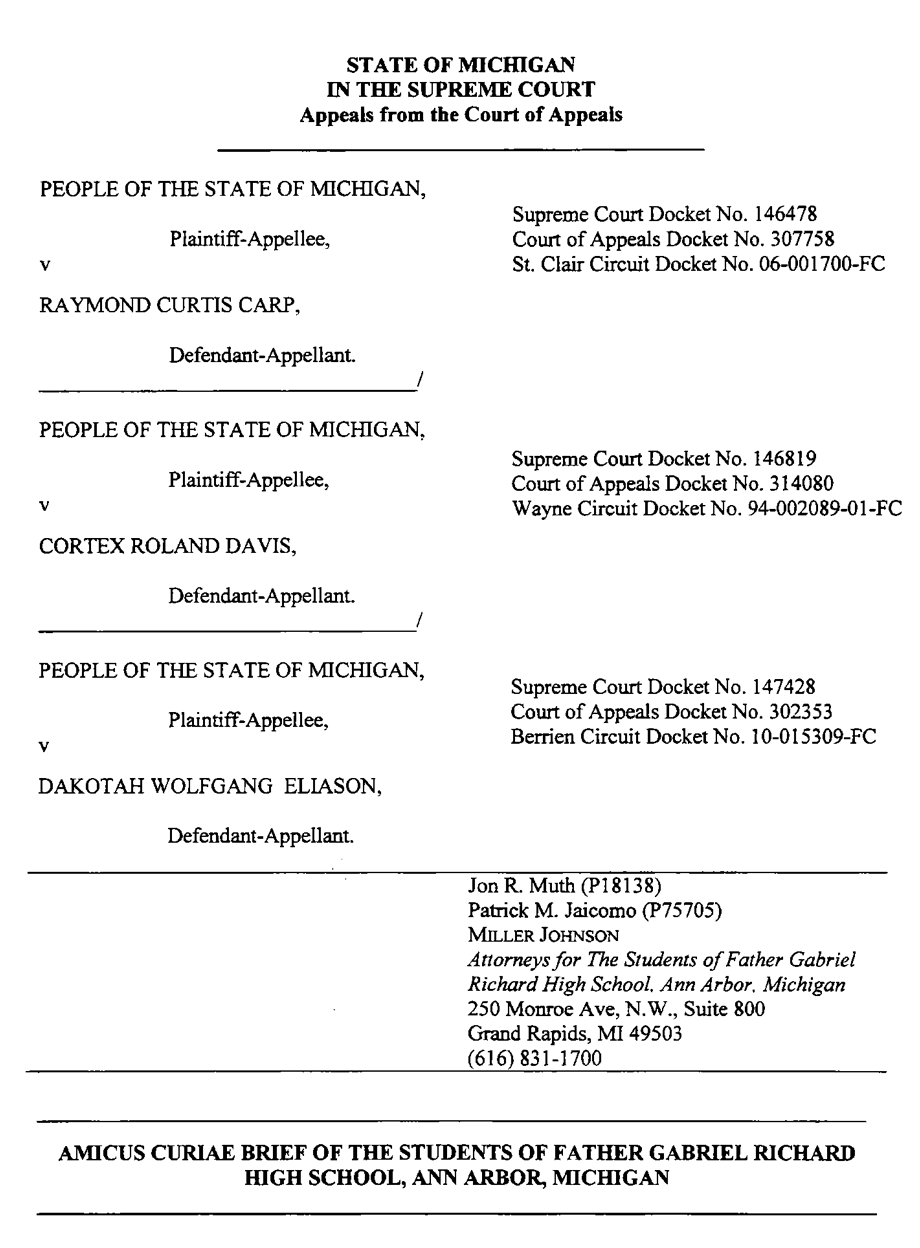
Summary of Argument
Miller Johnson, by Jon R. Muth and Patrick M. Jaicomo, is honored to be able to represent the Amicus Brief of 450 students (out of a total student body of approximately 530) at Father Gabriel Richard High School in Ann Arbor. Michigan. Attached as Exhibit A are the signatures of all 450 students. Our role as counsel has been only to attend to formal requirements and assure that the citations are accurate. While certain formal requirements of primary appellate briefs may be still lacking, what is significant here is the voice of the students. They bring a unique and important perspective to the question of how society and the law are to deal with juvenile offenders. Every word in this brief from the end of this sentence to the concluding valediction is theirs, with primary drafting credit to Marilyn Sarosi, a high school junior.
Amici are not constitutional scholars with an expertise in the 8th Amendment. We're not psychologists who study children and their cognitive, emotional and psychological development. Amici are members of the Student Body of Father Gabriel Richard High School in Ann Arbor ("FGR"). As high school students, ages 14-18, we live and breathe the traits and characteristics laid out in the U.S. Supreme Court rulings of Miller, Roper and Graham. We can testify to the overwhelming impact that our environment and peer pressure have on our daily life. Moreover, our Catholic faith guides our belief in the redemptive capacity of people, especially children, and limits the vengeful response that would keep children imprisoned until death. We bring a unique perspective that no other group can bring and as participants in Michigan's future. We have an interest in assuring that our Michigan justice system is truly blind and balanced.